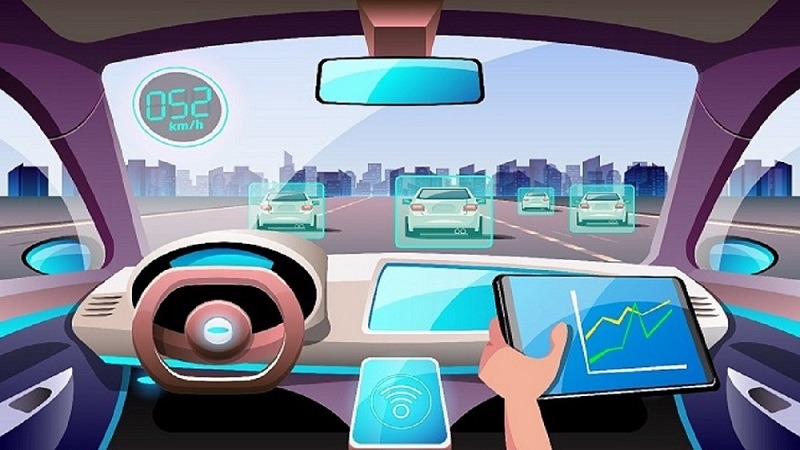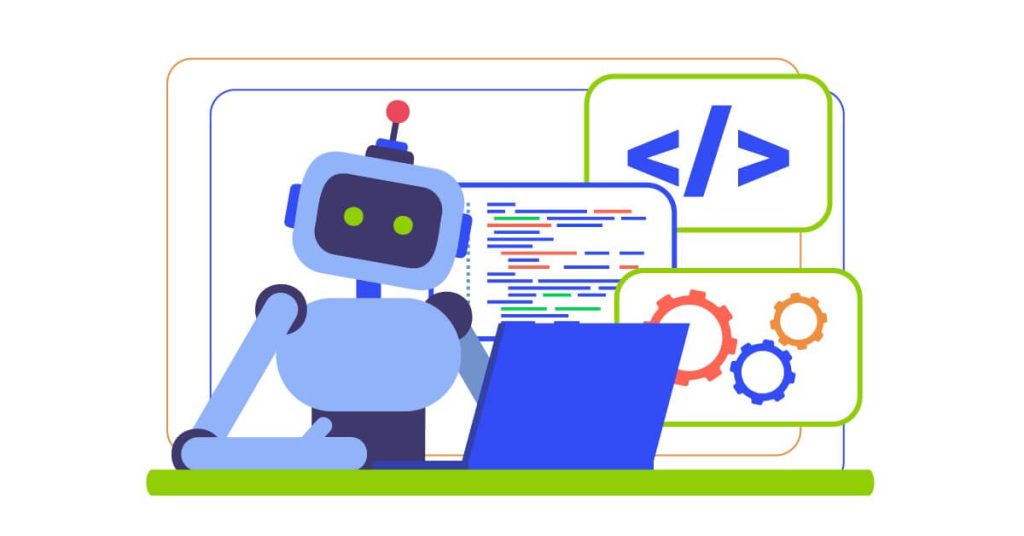Use of adaptive AI has the chance to be a game-changing technology, one that can keep learning new things and provide rich actionable insights. It helps to drive the expansion and success of your company. Traditional machine learning models, which have a flexible structure, are not capable of dealing with the lively nature of our fast-changing atmosphere; especially with the flow of data created by the Internet of Things (IoT). Adaptive AI (Artificial Intelligence) has the potential to completely transform the automation of activities within the framework of DevOps, making them both more efficient and effective.
However, with the expansion of adaptable AI, solutions are being found for this problem. With its capacity for continuous learning, adaptive AI development solutions offers a more flexible method of ML than traditional methods. This is done by letting models increase and familiarize themselves with newer input in actual time. This aids in overcoming the constraints of classic machine learning and successfully faces the difficulties given by our continuously growing data environment.
Moreover, this helps to overcome the limitations of traditional machine learning. AI that uses continuous learning to consistently accumulate knowledge and become better over time is an extremely powerful kind of AI. This signifies a big movement away from static learning toward a method that is more adaptable, which may have a favorable effect on a variety of businesses.
Adaptive AI for Automating DevOps Tasks

In a lot of ways, DevOps and AI/ML are like something that goes hand in hand. To be as efficient as possible, DevOps requires automation, and AI and ML are a logical solution for dealing with repetitive operations. An artificially intelligent “bot” is analogous to a member of a team who is laser-focused on completing a single mission, pays extraordinary attention to detail, and does not need a holiday or even a break for coffee.
When we questioned DevOps teams about the most common reasons for software release delays, the respondents identified tasks that were manual, time-consuming, arduous, and likely prone to mistakes. Some examples of these activities include software testing, code review, security testing, and code development. AI and ML may prove to be indispensable for many teams in the process of streamlining these operations.
The conventional method of automating tasks is based on established rules and scripts, both of which have the potential to be inflexible and restricted in their capabilities. However, when combined with Adaptive AI, automation needs dynamism and the ability to adjust to changing conditions and fundamentals.
Core Ideas of the DevOps Procedure
1) Continuous Addition and Continuous Delivery
Automating the procedure of emerging, testing, and delivering software is what is known as Continuous Addition and Continuous Delivery (CI/CD). This guarantees that changes are made regularly and that feedback is offered quickly.
2) Infrastructure as Code (IaC)
This refers to the process of managing infrastructure via the use of code. This method ensures that settings are maintained consistently and enables automated installations.
3) Monitoring and Observability
This involves continually monitoring the performance of your apps as well as the state of your infrastructure to ensure that everything is running well. This enables you to identify difficulties before they develop into major challenges.
4) Collaboration and Communication
DevOps promotes open and productive communication between software engineers, operations teams, and other individuals who are engaged in the process of developing software. Cooperation of this kind is very necessary for achievement.
DevOps best tools that embraced the use of Generative AI
- The goal of incorporating generative AI into DevOps processes is to cut down on the amount of manual labor required and increase productivity. Harness’s CI/CD platform has been enhanced by the incorporation of big language models, which allows NLP formulation, automatic security perusing, and an AI associate that can examine logs and propose potential repairs.
- Capabilities such as automatic code evaluations and chaotic engineering will be implemented over the next months. Harness eliminates the dangers associated with using proprietary code by working up on models on public data.
- Harness anticipates that its Generative AI development solutions would result in productivity benefits of 30–50% for DevOps and speed up vulnerability mitigation by 50–75%. This may encourage more companies to update their older CI/CD systems.
- During this time, Kubiya.ai introduced an Artificial Intelligence assistant designed for platforms and knowledge management. Conversationally, users may access DevOps functionality, eliminating the need to switch contexts while moving between tools. The deployment of thousands of prebuilt automation takes just minutes and is done using natural language. The adaptive AI trains itself to adapt to new situations on its own.
- Generative AI offers DevOps measurable improvements in terms of productivity. However, to prevent the abuse of proprietary code and the introduction of new hazards, it needs comprehensive training. Organizations need to strike a balance between innovation and governance.
The Intelligent Creation of Test Cases and their Execution in DevOps

AI solutions can dynamically construct robust test suites by making use of heuristics and combinatorial approaches. This eliminates the need for manually coding test cases. The AI engines educate themselves on the intended behavior of the app using various methods. Accelerating the implementation of automated tests by running them in parallel across several browsers and devices is one way to do this. The ability of human testers to concentrate on exploratory testing for new situations becomes available.
The log file may then with Adaptive AI to aid with analysis and make ideas for effective infrastructure management. Here Adaptive AI can do with the majority of the information. If you have an experienced team of DevOps engineers and you want to increase its preparedness for AI, the first thing you should think about doing is automating the method. The pipeline needs to be structured like this:
- Define the location of the dataset that will be created by your orchestration software (such as Jenkins or Microsoft VSTS/TFS), and then provide the criteria for how that program should capture the data. Make sure there is a version control system in place for the repository!
- Make sure that the production and development orchestrators are clearly distinguished from one another. Make a plan to scale both up to several instances over time.
- Assure that your server can connect to the versioned repository once it has been enabled.
- Define the triggers for both the testing and the improvement processes. Establish validation procedures for those triggers, and connect your automation server to the sources from which they originate.
- In response to such triggers, you should code and implement your recommended actions.
- Creating and working on verification mechanisms to safeguard the aforementioned steps were successful.
- When developing the pipeline for the trigger, action, and validation sequences with the intention of scalability, it is very essential to use uniform code.
- In the absence of this structure, the expansion of the organization is at a standstill.
Few Methods that Adaptive AI is Affecting DevOps
At present Adaptive AI has an effect, either directly or indirectly, on almost every facet of our life. AI is being aggressively addressed across the board, from small businesses and startups to mid-sized corporations and major enterprises, and even by governments. Nevertheless, as a result of the increasing focus on AI, there is also an increased level of hype, which has led to some unfavorable views about the influence that AI would have on human professions and the workforce. Today, talks about Adaptive AI and robots taking over employment have replaced the age-old disagreements about computers and machines creating over human jobs. These debates engrossed on the removal of human labor.
As Adaptive AI assumes a more prominent position in interpersonal and professional interactions, DevOps, along with every other facet of corporate and individual life, even its experiencing a shift. It is important to have an understanding of where some of the most critical responsibilities and activities carried out in DevOps may be subject to change as a result of the use of generative Artificial Intelligence.
1) The Provisioning of Infrastructure and Management of It
As AI becomes more capable of doing better and quicker analysis of previous use data to take the right steps, the ability to estimate infrastructure capacity, size, and auto-scaling may be enhanced. By delivering intelligent prompts across desktop, browser, and mobile apps, the incorporation of chatbots presents a real opportunity to make management more efficient.
2) Safety and Regulatory Compliance
Adaptive AI may be used to produce better irregularity discovery and compliance reportage for endpoints. When compared to human involvement, it provides quicker identification of aberrant movement, categorization of endpoints, and speedier implementation of agreement remedies.
AI-kind agents can continually check massive volumes of system traffic data, actively identify possible malware risks, and be trained to either stop the attack or greatly minimize the surface of the flaws. This allows the agents to dramatically improve network security.
3) Making the Transition from Monitoring to observe
Monitoring and analyzing logs both proactively and reactively demand a huge amount of human work, which is frequently required for predicting app routine decline and averting possible downtime. Adaptive AI, on the other hand, may be used to provide more accurate forecasts of anticipated downtime. With the use of self-automation, Adaptive AI can perform measures to reduce difficulties.
Adaptive AI can accurately forecast performance deterioration and, as a result, reduce the warning fatigue experienced by monitoring teams by employing more intelligent notifications. It also can send input to developers, which may help enhance system models and logs. AI-driven methods will be able to aid with early triages as logging and warnings get more accurate. This will enable teams to concentrate on operating apps that are more dependable and stable for the company.
4) Safety and Regulatory Compliance
It is problematic for DevOps teams to keep one step ahead of the race because of the increasing difficulty of both safety risks and compliance needs. Adaptive AI is capable of repeatedly examining data via an extensive variability of sources, to see irregularities, and checking possible security faults. In addition to this, it might aid in the automation of acquiescence inspections, which ensures that industry norms and laws are adhered to.
Bottom Line
Adaptive AI will remain to recollect its outstanding position in all areas of labor and would last to act as a primary powerful force back of each business inventiveness, DevOps has already started its path toward fundamental change. It will remain to see quick alterations in the way that IT and software services firms of every sizes hold it and grow with it. Eventually, conducive to the growth of their core businesses also the satisfaction of their customers.
Read more:



